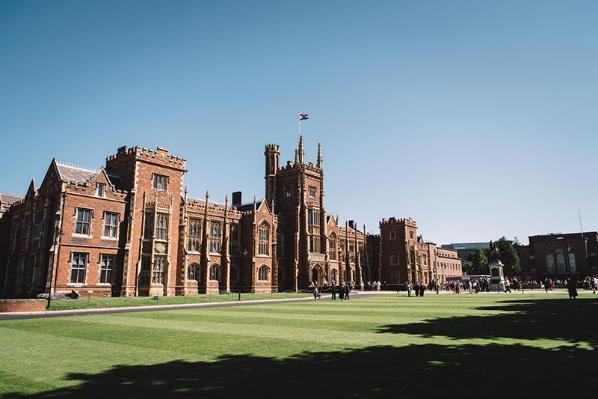BLOG: Agreement 25 – Addressing the Legacy of the Troubles after the Belfast/Good Friday Agreement
"As scholars with expertise in international human rights law and transitional justice processes in other post-conflict societies, we have for many years tried to use that knowledge to help Northern Ireland address its past."

A blog by Professor Louise Mallinder, Legacy Theme Lead, Senator George J. Mitchell Institute for Global Peace, Security and Justice and School of Law, and Professor Kieran McEvoy, Rights and Social Justice Theme Lead, Senator George J. Mitchell Institute for Global Peace, Security and Justice and School of Law.
Northern Ireland’s thirty-year armed conflict was marked by serious human rights violations, including killings, disappearances, and serious injuries. Over 3,700 people were killed and more than 47,000 were injured. These harms had lasting and severe impacts on victims and survivors in Northern Ireland, many of whom have been engaged in campaigning for truth, accountability and reparations for decades.
The parties to the Good Friday Agreement expressly recognised that ‘it is essential to acknowledge and address the suffering of victims of violence as a necessary element of reconciliation’. However, the Agreement did not provide any details on how this should be done. Instead, the negotiators left that politically-sensitive work to the Victims Commissioner, which resulted in recommendations being published shortly after the Agreement was signed. Absent an overarching mechanism to address the past, the justice system has done much of the heavy lifting in dealing with particular cases through public inquiries, police and police ombudsman investigations, legacy inquests, civil actions and a handful of prosecutions.
There have been a series of efforts to ‘pull it all together’ including extensive political negotiations and most recently a unilateral decision on the part of the current British government to introduce a conditional amnesty and an Information Recovery Commission with limited investigative powers – a bill which is opposed by all the political parties in Northern Ireland, all opposition parties in Westminster, victims and survivors and the Irish government.
As scholars with expertise in international human rights law and transitional justice processes in other post-conflict societies, we have for many years tried to use that knowledge to help Northern Ireland address its past.
With Mitchell Institute colleagues, particularly Dr Anna Bryson, we have worked with the local human rights NGO the Committee on the Administration of Justice (CAJ) to ensure that any legal proposals are human rights compliant. We have tried to produce user-friendly policy reports on complex legal and technical legacy related themes to inform local political and civil society debates on addressing the past. With Anna and CAJ, we also produced model legislation with explanatory guidance, and written and oral evidence for legislative committees in the United Kingdom, Ireland and the United States. We have also organised several conferences and workshops and engaged extensively with local, national and international media.
While this work remains ongoing, a couple of years ago, the University asked us to document the impact of our engaged research an impact case study in REF2021. In doing so, we gathered evidence that showed that our local and international research on amnesties, truth recovery and the value added of oral history to transitional justice has directly influenced efforts to deal with the past in NI since 2014. Our work has impacted political negotiations in Northern Ireland (2014-2015), UK draft legislation (2018), the deliberations of parliamentary select committees in the UK and Ireland as well as the views of international stakeholders (including the United Nations and the Council of Europe).
Such impact-facing work is a key part of our job.
Moreover, as people who live and work in this society, and who are raising families here, we feel a personal responsibility to ensure that the harms of the past are finally addressed. Victims and survivors have waited long enough for truth, justice and accountability.
To find out more about our Agreement 25 celebrations, including how to access the livestream of the event, visit the Agreement 25 website.

